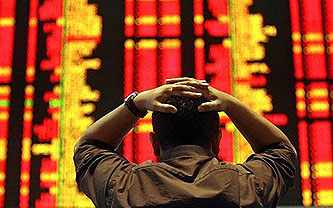 The New York Times reports that Tim Geithner’s plan to buy up toxic assets from the banking system is dead. Basically, even at the subsidized prices the program would have offered them, banks weren’t willing to sell because it would have forced them to recognize big losses, and recognizing big losses would have been bad. Ezra Klein comments:
The New York Times reports that Tim Geithner’s plan to buy up toxic assets from the banking system is dead. Basically, even at the subsidized prices the program would have offered them, banks weren’t willing to sell because it would have forced them to recognize big losses, and recognizing big losses would have been bad. Ezra Klein comments:
There are two ways of understanding what happened here. The first is that banks couldn’t sell their assets at current prices because doing so would have rendered them effectively insolvent. In this scenario, PPIP fails to fulfill its intended function: Saving the banks. The toxic assets survive and the banking system remains hollow and unhealthy.
The second is that banks no longer need to rush their troubled assets off their books because they’re increasingly able to raise private capital, operate in a restored financial market, and wait out the last vestiges of the storm. They can, in this world, let the value of the assets rise naturally, and sell them off later. In this scenario, PPIP is no longer necessary.
I’ll take door #1. It’s at least arguable that the banks were justified in not wanting to sell toxic securities at the fire sale prices on offer from vulture funds and others. But Geithner’s plan would have offered them considerably more than that — and they’re still unwilling to sell. That means they’re completely dedicated to the proposition that all their mortgage-backed junk is worth exactly what they say it’s worth.
Maybe this will work out in the end. But history suggests that we’d all be better off if banks were forced to honestly account for their losses, take their lumps, and then move on. Instead, Geithner’s stress tests have persuaded everyone that things are fine and losses on these securities aren’t as bad as everyone thinks. Maybe so. But if Geithner and the banks are wrong, doing it this way is likely to drag the pain out over years, producing a long period of sluggish semi-recovery and slow, fragile growth.
That’s basically my fear at this point. I sure hope Geithner knows what he’s doing.

















